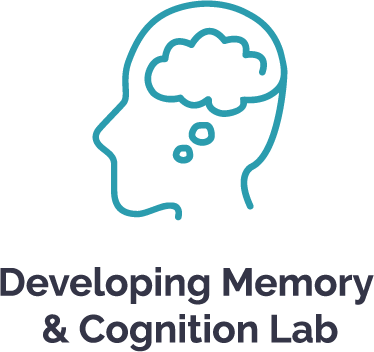Cognition and Memory across the Lifespan
Prospective memory is a critical ability required for independent living and for health maintaining behaviours during aging. For example, older adults must remember their daily activities including taking medications or attending medical appointments. In our lab, we are interested in the impact of interfering activities in the ability to remember to carry out future intentions and its effect on younger and older adults. We have explored this topic in a series of studies.
A recently published study examined the impact of the content of the retention interval on young adults’ prospective memory (Mahy et al., 2018, Psychological Research). This study showed that prospective memory was better after a difficult, slower paced activity compared to an easy, but fast paced task that relied on verbal processing. We believe that this surprising result was due to the easier activity interfering with subvocal rehearsal of the prospective intention.
In a follow-up study, we examined the effect of a difficult or easy task (Raven's matrices) during a delay on prospective memory performance in young and older adults (O'Connor, Campbell, & Mahy, 2020, Aging, Neuropsychology, and Cognition). Older adults performed worse than young adults on the prospective memory task but there was no impact of delay task difficulty. The extent to which an individual indicated thinking about the prospective intention after the task was related to prospective memory performance. Older adults indicated that they thought about the prospective intention more when they were probed during the delay task compared to younger adults.
Other collaborative research has examined implicit biases in aging (O'Connor et al., 2024) and changes in theory of mind during aging (Mahy et al., 2014).
A recently published study examined the impact of the content of the retention interval on young adults’ prospective memory (Mahy et al., 2018, Psychological Research). This study showed that prospective memory was better after a difficult, slower paced activity compared to an easy, but fast paced task that relied on verbal processing. We believe that this surprising result was due to the easier activity interfering with subvocal rehearsal of the prospective intention.
In a follow-up study, we examined the effect of a difficult or easy task (Raven's matrices) during a delay on prospective memory performance in young and older adults (O'Connor, Campbell, & Mahy, 2020, Aging, Neuropsychology, and Cognition). Older adults performed worse than young adults on the prospective memory task but there was no impact of delay task difficulty. The extent to which an individual indicated thinking about the prospective intention after the task was related to prospective memory performance. Older adults indicated that they thought about the prospective intention more when they were probed during the delay task compared to younger adults.
Other collaborative research has examined implicit biases in aging (O'Connor et al., 2024) and changes in theory of mind during aging (Mahy et al., 2014).
Relevant Publications
O’Connor, A. M., Hall, W. M., Mahy, C. E. V., & Campbell, K. L. (2024). Younger and older women, but not men, are implicitly biased to associate honesty with children. Journal of Applied Research in Memory and Cognition.
O’Connor, A. M., Campbell, K. L., & Mahy, C. E. V. (2020). Younger and older adults’ prospective memory: The role of delay task difficulty. Aging, Neuropsychology, and Cognition. [PDF]
Mahy, C. E. V., Schnitzspahn, K. M., Hering, A., Pagobo, J. R. & Kliegel, M. (2018). The delay period as an opportunity to think about future intentions: Effects of delay length and delay task difficulty on young adult’s prospective memory performance. Psychological Research, 82, 607-616. [PDF]
Mahy, C. E. V. (2018). Mind reading across the lifespan: Current themes and future challenges. Zeitschrift fur Psychologie, 226, 134-135. [PDF]
Mahy, C. E. V., Vetter, N. C., Kühn-Popp, N., Löcher, C., Krautschuk, S., & Kliegel, M. (2014). The influence of inhibitory processes on affective theory of mind in young and old adults. Aging, Neuropsychology, and Cognition, 21, 129-145.
doi: 10.1080/13825585.2013.789096 [PDF]
Ihle, A., Hering, A., Mahy, C. E. V., Bisiacchi, P. S., & Kliegel, M. (2013). Adult age differences, response management, and cue focality in event-based prospective memory: A meta-analysis on the role of task order specificity. Psychology and Aging, 28, 714-720. doi: 10.1037/a0033653 [PDF]
O’Connor, A. M., Campbell, K. L., & Mahy, C. E. V. (2020). Younger and older adults’ prospective memory: The role of delay task difficulty. Aging, Neuropsychology, and Cognition. [PDF]
Mahy, C. E. V., Schnitzspahn, K. M., Hering, A., Pagobo, J. R. & Kliegel, M. (2018). The delay period as an opportunity to think about future intentions: Effects of delay length and delay task difficulty on young adult’s prospective memory performance. Psychological Research, 82, 607-616. [PDF]
Mahy, C. E. V. (2018). Mind reading across the lifespan: Current themes and future challenges. Zeitschrift fur Psychologie, 226, 134-135. [PDF]
Mahy, C. E. V., Vetter, N. C., Kühn-Popp, N., Löcher, C., Krautschuk, S., & Kliegel, M. (2014). The influence of inhibitory processes on affective theory of mind in young and old adults. Aging, Neuropsychology, and Cognition, 21, 129-145.
doi: 10.1080/13825585.2013.789096 [PDF]
Ihle, A., Hering, A., Mahy, C. E. V., Bisiacchi, P. S., & Kliegel, M. (2013). Adult age differences, response management, and cue focality in event-based prospective memory: A meta-analysis on the role of task order specificity. Psychology and Aging, 28, 714-720. doi: 10.1037/a0033653 [PDF]



